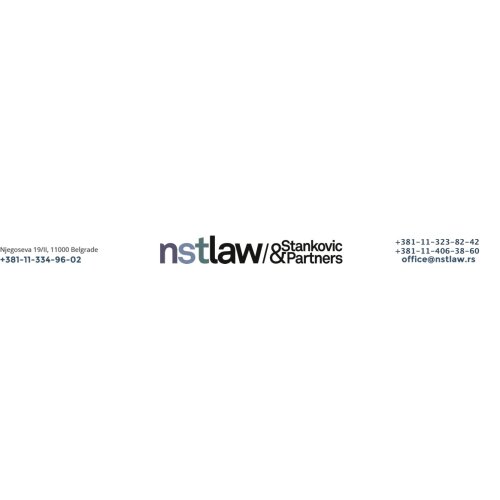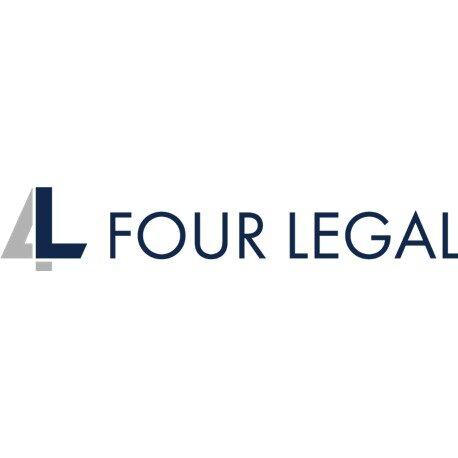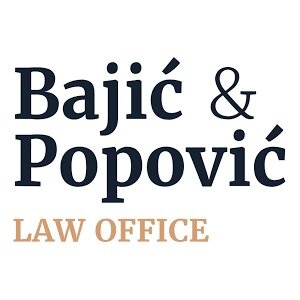Best Sexual Harassment Lawyers in Serbia
Share your needs with us, get contacted by law firms.
Free. Takes 2 min.
Or refine your search by selecting a city:
List of the best lawyers in Serbia
Legal guides written by Business Law office - Advokatska Kancelarija:
- Why Invest In Serbia
About Sexual Harassment Law in Serbia
Sexual harassment in Serbia is legally recognized as a form of discrimination and is prohibited under Serbian law. It typically includes any unwelcome sexual advances, requests for sexual favors, or other verbal or physical conduct of a sexual nature that creates a hostile or offensive environment. Serbia has been aligning its legislation with European Union standards, which means that the legal framework is continually evolving to provide more comprehensive protection and avenues for redress for victims of sexual harassment.
Why You May Need a Lawyer
Consulting a lawyer might be necessary in various situations related to sexual harassment. If you are experiencing harassment in the workplace and it is affecting your performance or mental health, a lawyer can provide guidance on your rights and possible actions. Additionally, if you plan to file a formal complaint or pursue a lawsuit, legal assistance can be crucial in collecting evidence, understanding procedural rules, and protecting yourself legally. Employers may also need legal advice to ensure compliance with laws and to handle any complaints appropriately.
Local Laws Overview
Key aspects of Serbian laws relevant to sexual harassment include:
- The Labor Law prohibits any discrimination, including sexual harassment, and mandates employers to provide a safe working environment.
- Criminal Code: Severe forms of sexual harassment may be prosecuted under criminal law as offenses against sexual freedom.
- Gender Equality Law emphasizes the need for public and private entities to prevent gender-based discrimination and harassment.
- Anti-Discrimination law provides a broader framework for addressing different forms of discrimination, including sexual harassment.
Frequently Asked Questions
What constitutes sexual harassment?
Sexual harassment includes unwelcome sexual advances, requests for sexual favors, and other verbal or physical conduct of a sexual nature. It is characterized by creating a hostile, intimidating, or offensive environment.
Where can sexual harassment occur?
Sexual harassment can occur in a variety of environments, including workplaces, educational institutions, and public spaces.
What should I do if I experience sexual harassment at work?
Document the incidents, report the behavior to a supervisor or HR department, and seek advice from a lawyer who specializes in employment or discrimination law.
Can men be victims of sexual harassment?
Yes, sexual harassment can affect individuals of any gender. The laws protect all victims of harassment regardless of gender.
Is an employer responsible for preventing sexual harassment?
Yes, employers in Serbia are required to take reasonable measures to prevent harassment in the workplace and take appropriate action if it occurs.
How can I prove sexual harassment occurred?
Evidence can include written records of the incidents, witness testimonies, emails, and other communication that substantiates the claim of harassment.
Can I file a complaint anonymously?
While anonymous complaints can be challenging to act upon, some organizations may have hotlines or systems in place for anonymous reporting. Discuss options with legal counsel.
What are the possible outcomes if I pursue legal action?
Outcomes can include formal apologies, disciplinary action against the perpetrator, workplace policy changes, compensation, or criminal charges, depending on the severity and circumstances.
What is the timeframe for filing a complaint?
Timeframes can vary depending on the nature of the complaint and the legal avenue pursued. It is advisable to act promptly and seek legal advice to understand specific deadlines.
Are there support services available for victims?
Yes, there are support services available including NGOs, counseling services, and helplines that provide assistance to victims of sexual harassment.
Additional Resources
Consider reaching out to the following organizations and resources:
- The Commissioner for Protection of Equality: Offers advice and assistance related to discrimination and harassment cases.
- Local legal aid offices: Providing free or low-cost legal services to those in need.
- NGOs such as Autonomous Women's Center and SOS Hotline: Offer support and guidance for victims of sexual violence and harassment.
Next Steps
If you need legal assistance regarding sexual harassment, consider the following steps:
- Document all incidents in detail to preserve evidence.
- Speak to a trusted colleague, friend, or family member about your experience for support.
- Contact a lawyer specializing in sexual harassment or labor law to discuss your case.
- Consider reaching out to relevant organizations and governmental bodies for further assistance and advice.
Lawzana helps you find the best lawyers and law firms in Serbia through a curated and pre-screened list of qualified legal professionals. Our platform offers rankings and detailed profiles of attorneys and law firms, allowing you to compare based on practice areas, including Sexual Harassment, experience, and client feedback.
Each profile includes a description of the firm's areas of practice, client reviews, team members and partners, year of establishment, spoken languages, office locations, contact information, social media presence, and any published articles or resources. Most firms on our platform speak English and are experienced in both local and international legal matters.
Get a quote from top-rated law firms in Serbia — quickly, securely, and without unnecessary hassle.
Disclaimer:
The information provided on this page is for general informational purposes only and does not constitute legal advice. While we strive to ensure the accuracy and relevance of the content, legal information may change over time, and interpretations of the law can vary. You should always consult with a qualified legal professional for advice specific to your situation.
We disclaim all liability for actions taken or not taken based on the content of this page. If you believe any information is incorrect or outdated, please contact us, and we will review and update it where appropriate.
Browse sexual harassment law firms by city in Serbia
Refine your search by selecting a city.

















